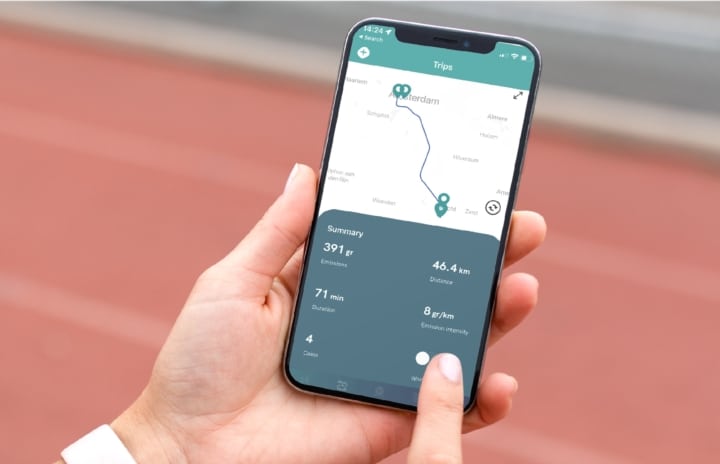Normative Regulation for Work-related Personal Mobility: Everything you need to know
What does the mandatory CO2 reporting entail?
Together we face enormous challenges to combat climate change. Reducing CO2 emissions is one of the challenges. As an employer, you have a big impact on reducing them. Commuting and business mobility together is responsible for almost half of the emissions from personal vehicles. The Reporting Requirement for Work-related PersonalMmobility requires employers to report data on this mobility annually. In this way, together we can gain insight into and control of CO2 emissions.
Who does the regulation apply to?
100+ employer
The requirement applies to employers that have 100 or more employees on January 1 of the calendar year you report on. An “employer” is an enterprise or public legal entity (for example, a municipality) registered with the Chamber of Commerce under a unique trade register number. An enterprise or legal entity may have several branches in the Netherlands registered under the same trade register number (branches outside the Netherlands are excluded). You report on all branches together.
What data should I provide?
Travel kilometers per type
In almost all cases, the reporting requirement is based on the number of kilometers driven/traveled per year for commuting and business purposes with a certain means of transport and/or fuel type. The classification by means of transport and/or fuel type has been made because the differences in CO2 emissions per type vary greatly. The classification guarantees the cleanest possible calculation of CO2 emissions.
The administration for business mobility is divided into three sub-administrations (lease/own fleet, mobility services, and declarations).
You must submit your annual data by July 1 of the following year. The first time is an exception and you submit the data for July 1 – December 31, 2023, by July 1, 2024.
How can I prepare my business for the introduction of this legislation?
The requested data comes from different sources. Therefore, especially in larger and more complex organizations, it is recommended that data collection be started early.
Fynch can help you with:
- Automatic trip registration, including differentiation of means of transportation and purpose of travel. Fynch calculates the CO2 emissions per trip made. To encourage your employees to use the app, we like to integrate with the travel allowance. We then facilitate a higher kilometer reimbursement for sustainable mobility, such as cycling. See HERE, how our client Censo applies this.
- CO2 reporting: track the development of CO2 emissions within your organization and thus be ready immediately for the new reporting legislation.
- Stimulate sustainable travel behavior: employees are rewarded for active and sustainable travel behavior, they can participate in challenges and they can spend their earned coins in Fynch’s members-only, sustainable marketplace. This makes sustainable travel extra attractive.

